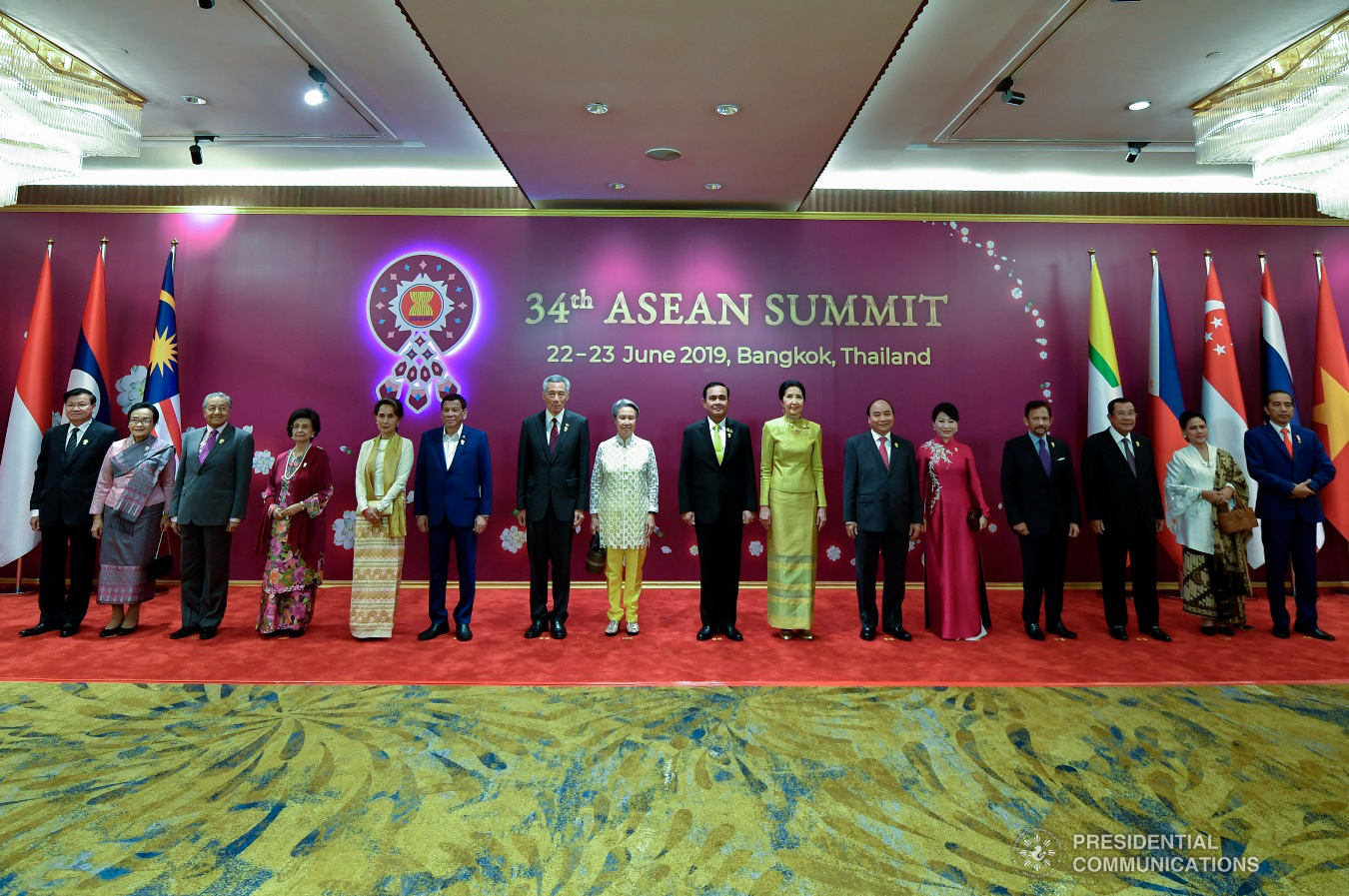Headline
ASEAN leaders vow self-restraint on South China Sea

FILE: President Rodrigo Roa Duterte poses for posterity with other leaders from the Association of Southeast Asian Nations (ASEAN) member states prior to the start of the 34th ASEAN Summit gala dinner at The Athenee Hotel in Bangkok, Thailand on June 22, 2019. PRESIDENTIAL PHOTO
BANGKOK – President Rodrigo Duterte and his counterparts in the Association of Southeast Asian Nations (ASEAN) vowed to exercise self-restraint to maintain peace, security, stability, safety and freedom of navigation in the South China Sea.
Duterte and the leaders of Brunei Darussalam, the Kingdom of Cambodia, the Republic of Indonesia, the Lao People’s Democratic Republic, Malaysia, the Republic of the Union of Myanmar, the Republic of the Philippines, the Republic of Singapore, the Kingdom of Thailand, and the Socialist Republic of Viet Nam said in their Vision Statement on Partnership for Sustainability that it was also important to work actively towards the full and effective implementation of the 2002 Declaration on the Conduct of Parties in the South China Sea (DOC) and the early conclusion of the Code of Conduct in the South China Sea (COC).
The ASEAN 10 leaders said it was also important to “exercise self-restraint in the conduct of activities and avoid actions that may further complicate the situation.
”
“Pursue the peaceful resolution of disputes in accordance with international law, including the 1982 UNCLOS, while enhancing mutual trust and confidence,” they added.
They also vowed to maintain the ASEAN region as a peaceful and secure area, even as they pledged to resolve any disputes and difference by peaceful means, such as dialogues.
The ASEAN leaders said maritime cooperation has to be enhanced as well, using internationally-accepted treaties and principles such as the 1982 United Nations Convention on the Law of the Sea (UNCLOS).
Among the disputes include the overlapping South China Sea claims by the Philippines, Brunei, Malaysia, Indonesia, and Vietnam and also involved third parties China and Taiwan.
There is also the boundary dispute between Malaysia, the Philippines, Brunei over north Borneo, which involved China and Taiwan.
Aside from the common dispute with China and Taiwan, ASEAN members also have additional disputes, such as the case of the overlapping claims by Indonesia, China and Taiwan over the waters north of the Natuna Islands; the contesting claims of Malaysia and the Philippines over Sabah and many others.
In the partnership for sustainability statement, the ASEAN 10 leaders said they would continue to promote regional peace and stability.
These would be attained through “enhancing confidence-building measures such as the Code for Unplanned Encounters at Sea, the Guidelines for Air Military Encounters, Guidelines for Maritime Interaction and the ASEAN Direct Communications Infrastructure, to promote communication, mutual trust and confidence, and reduce miscalculations and mishaps in the air and at sea.”
They also vowed to “support and promote the conservation and sustainable use of ASEAN’s coastal and marine environment, including to ensure food security, improve nutrition and promote benefits for the people.”





















